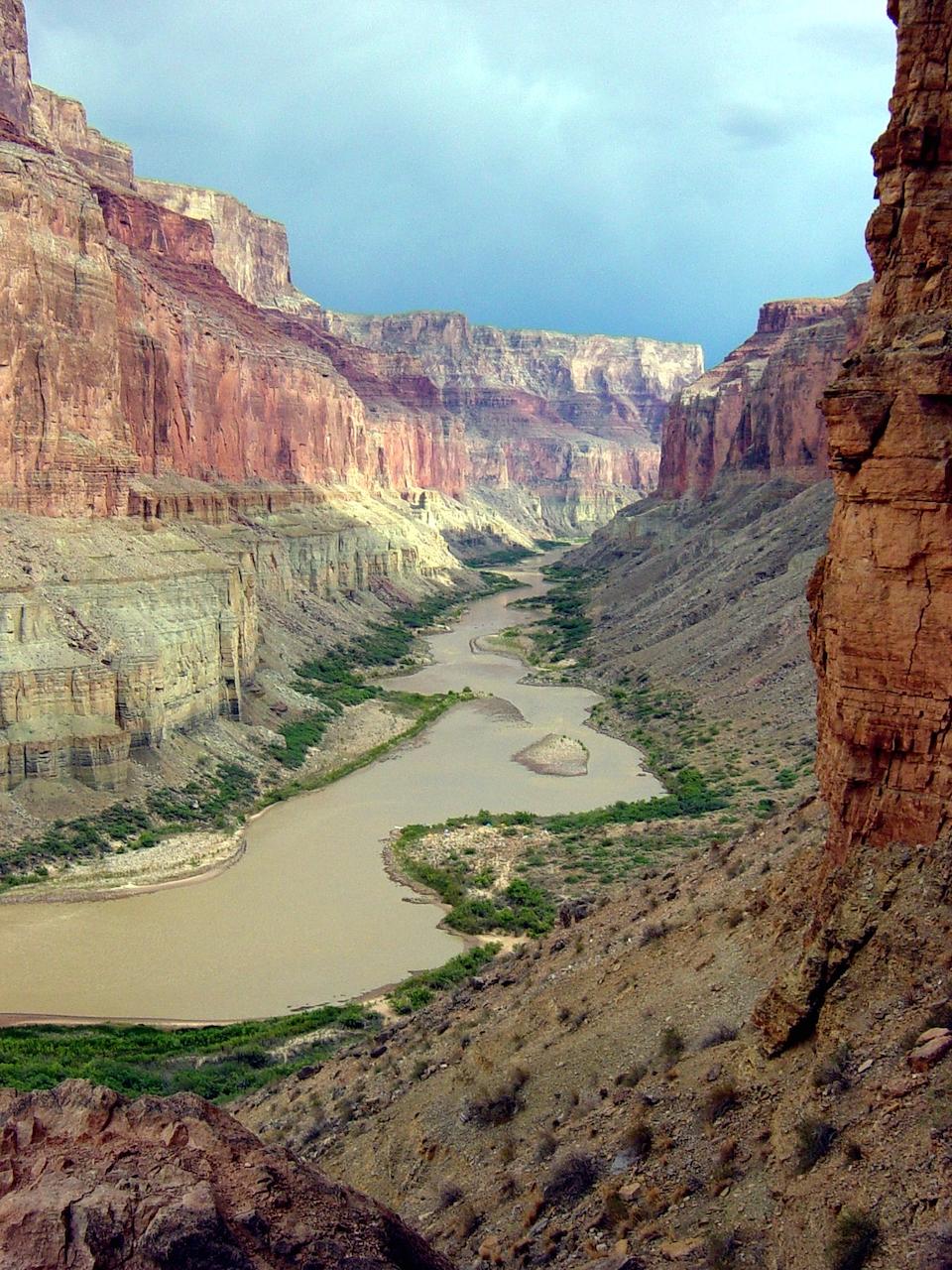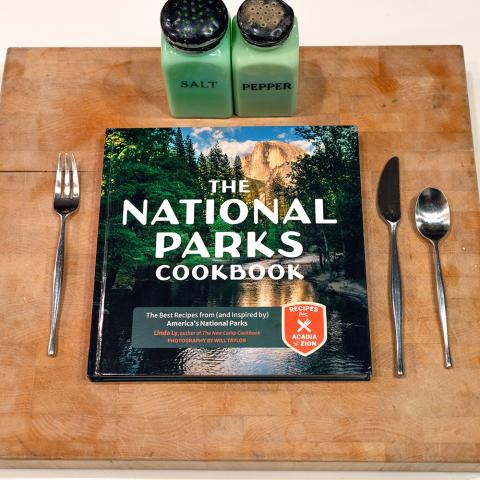
Hopes were dashed by coronavirus for many rafters who had permits to launch down the Colorado River through Grand Canyon National Park/NPS file
For Mark Landry, a Grand Canyon private raft trip has been a long-time dream, and a long time coming. He and his group were planning to launch down the Colorado River from Lees Ferry on March 25 for 18 days deep in the canyon, camping and rafting and experiencing the whitewater and wilderness like no other place on Earth.
It can be a life-altering experience. They were ready to run the 42 major rapids spread over 225 miles of the Colorado River, all the way to their takeout at Diamond Creek, on Hualapai tribal lands.
Landry is a veteran of a number of Alaskan rivers, but has never rowed "the Grand," and he was more than excited. He was packed and ready to head out, but then the national emergency related to the coronavirus interceded. He had signed up six years ago for the weighted lottery program administered by the National Park Service for this permit, and he is more than disappointed, but understands that these are unusual circumstances.
“I called the National Park Service and asked what’s going on,” he said from his home in Maine. “They said they were going to follow their protocol from the previous government shutdown.”
And sure enough, on March 21, Grand Canyon National Park suspended all river rafting trips from March 24 through May 21, which includes all commercial, administrative, and private trips. Landry understands the issues, and in fact seven people had already dropped out of the trip due to travel and health concerns.
March and April are usually a busy time for private boaters in the canyon, with up to three parties launching per day. Many of them rely on outfitters for boats, gear, shuttles and food to make things easier, and Landry had contracted with Professional River Runners (PRO) in Flagstaff, Arizona.
“But we had to pull the plug on the trip last Wednesday,” said Landry. “But I can’t say enough good things about Pro. We had over $1,500 in perishable food items, which they donated to a local food shelter for us. We’ve even deferred our refund for now.”
Beth Roeser is the manager at PRO, and has seen a big impact on their business.
“We start planning these trips up to a year in advance,” she said. “And we’ve already lost about 17 trips so far. But, we’re all in this together, and were doing right by both our employees and our clients.”
That includes increasing their 12 employees' sick time from 40 to 80 hours, and giving full refunds to clients.
“We have the best refund policy in the business, and most of our clients are very accommodating,” she added. And, they currently still have outfitted trips on the river, including one that doesn’t takeout until April 11. Luckily, the trips are all in touch via satellite phones to get the latest instructions, and even stricter sanitation protocols have been put in place by PRO.
For Landry and many others with cancelled trips, the National Park Service River Permit Office has offered two options going forward. The first option would refund all costs of permits ($400 for a standard permit and $90 per participant plus other fees). The permit holder would also have their lottery points reinstated, so they can reapply later. But for Landry, the second option sounds better: an ability to reschedule a launch date between 2021 and 2024. He’s definitely still looking forward to rowing down the grandest of canyons, and it will still be a trip of a lifetime.




 Support Essential Coverage of Essential Places
Support Essential Coverage of Essential Places







Comments
I'm glad these permits can be rescheduled. Imaging waiting 12 years to have your private trip cancelled (to wait only 6 years is lucky). How does restricting access to the river (whose access is already heavily regulated) control spread of a virus? I can agree with shuting down campgrounds, visitor centers, and other hotspots (including commercial river trips), but increasing backcountry restrictions doesn't really make sense to me. It just seems like heavy handed management .
Sounds like folks are working together. It probably helps that all of us on every 'end' of the equation are under the same stay at home reality.
There are high demands from river trips as a whole on NPS EMS and SAR responders at a time Grand Canyon National Park is not allowed to be fully closed. No need to increase responders' workload and potential exposures. A 6-12 year trip wait is a big deal to some, but the NPS accomodations for refund or reschedule are reasonable, and the issue pales in comparison to the life and death issues at hand.
Let's do a "What If" Let's say you and your group show up for your trip bet in getting here you had stopped st a restaurant where your server had an asymptomatic case of Covid19 and in serving you infected 5 of your party. You come in and prep and launch and travel down the river. Interacting with about 2 groups a day, sharing conversations and possibly food and drinks. You go past Phantom Ranch and interact with the staff there. One day later at Granite Rapid you have 3 people very sick all of a sudden. You call for help and the helicopter arrives, does an assessment and starts airlifting people out. But now all the rest of the people on your trip have been infected as have a ranger and people on other trips. Some of them may die before they make it to the hospital because of logistics.the crew that came to get you is in quarantine and everyone you fretted so casually is now waiting to get sick. This could be a probable situation and the park is simply not staffed to deal with it.Stopping river trips before they have this situation is about the only choice they can make to protect the public and their own staff.Steve Sullivan and the staff in the River Permits office are absolutely the best and will work with the affected groups to try to get as many people on the river as possible.
In case you think this is not a possible scenario, the Navajo Nation had the first 4 Covid positives in the eastern reservation less than 2 weeks ago from groups that attended a church service. They now have 69 people with positive confirmed diseases in less than 2 weeks, most if not all from that single exposure.
They do not have emergency personal incase of an evac. There would be no heli service, nor ambulance to get you to Flag. Park service is closed. If someone was to get sick on the river. It could be a life and death situation.
It's all about not stressing the SAR and other employees needed to keep the river corridor safe. Imagine getting flown out of the canyon with a broken leg, only to not have a hospital bed or urgent care to set your leg? Backcountry users have far more evacs than rafters, BTW.
Any idea how the NPS is handling the 18 day private raft trips on the CO river that started from Lee's Ferry before this order came into effect? Thanks in advance
My wife & I were/are scheduled to be on this trip. Would have been number 12 for me number 5 for her. Canceling was the only reasonable option. It sucks equally for everyone. 11 times with PRO, none better in the business...The good news is we have beer, whiskey and snacks for at least the next 18 days. It could be worse!